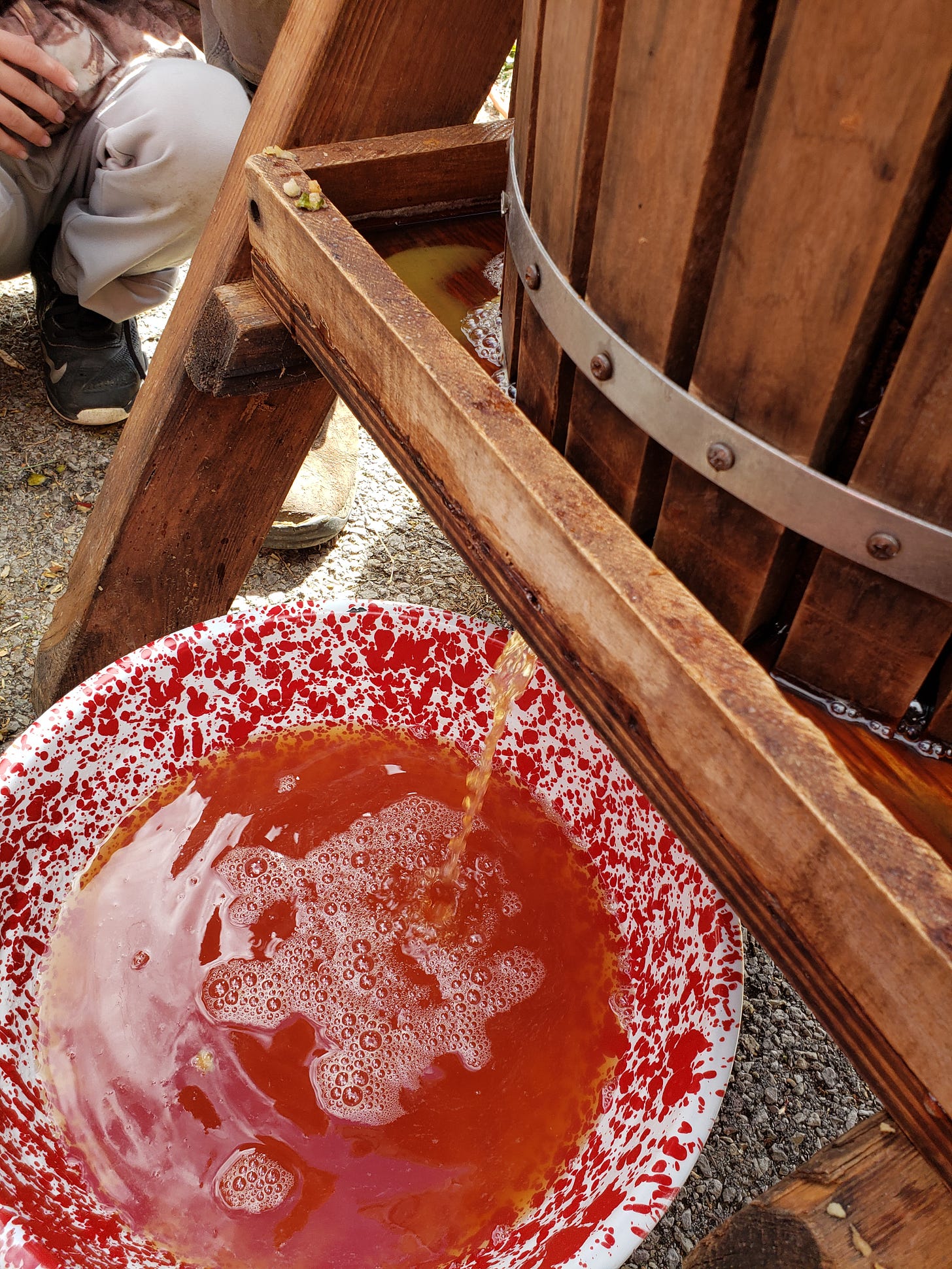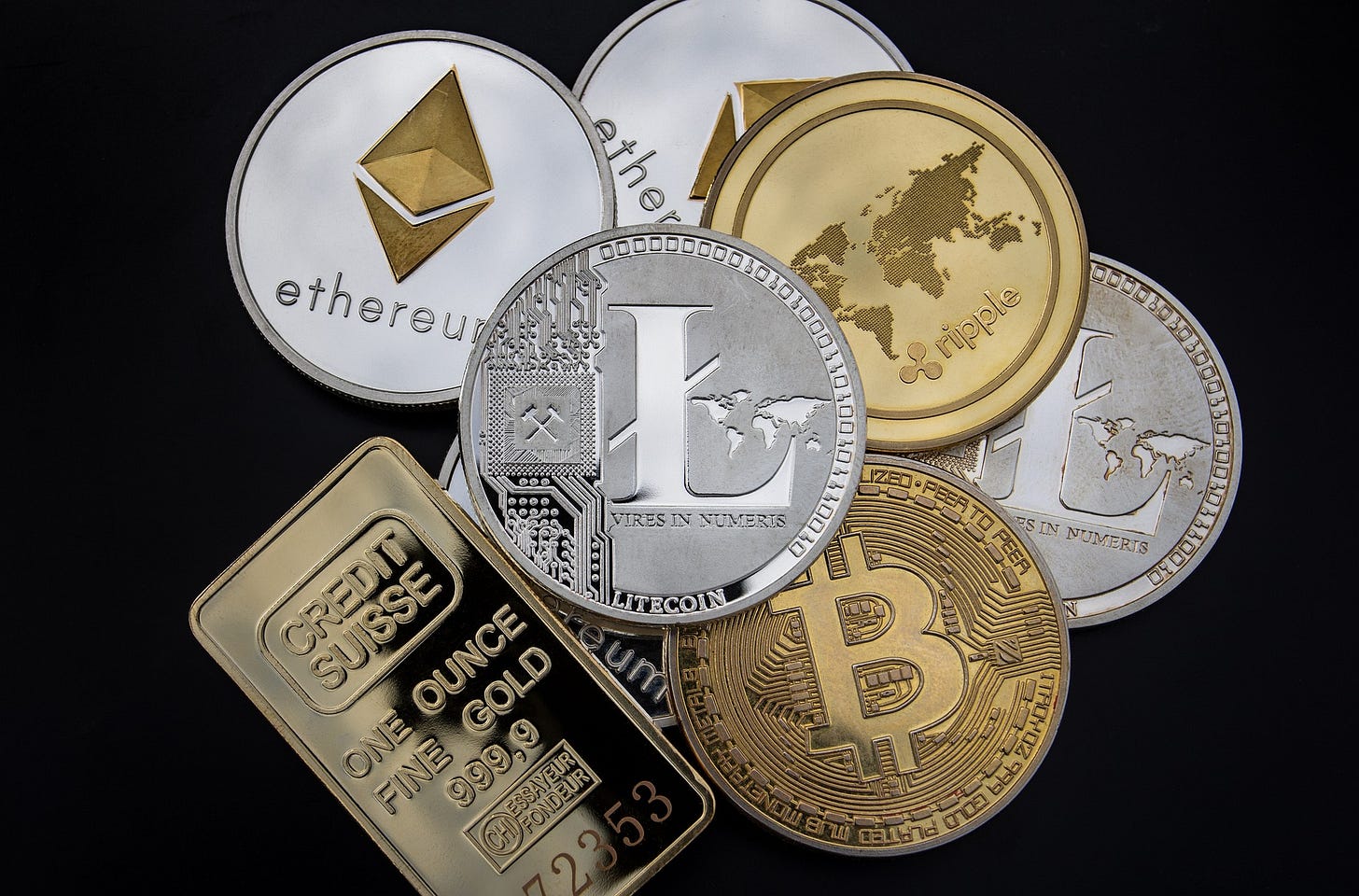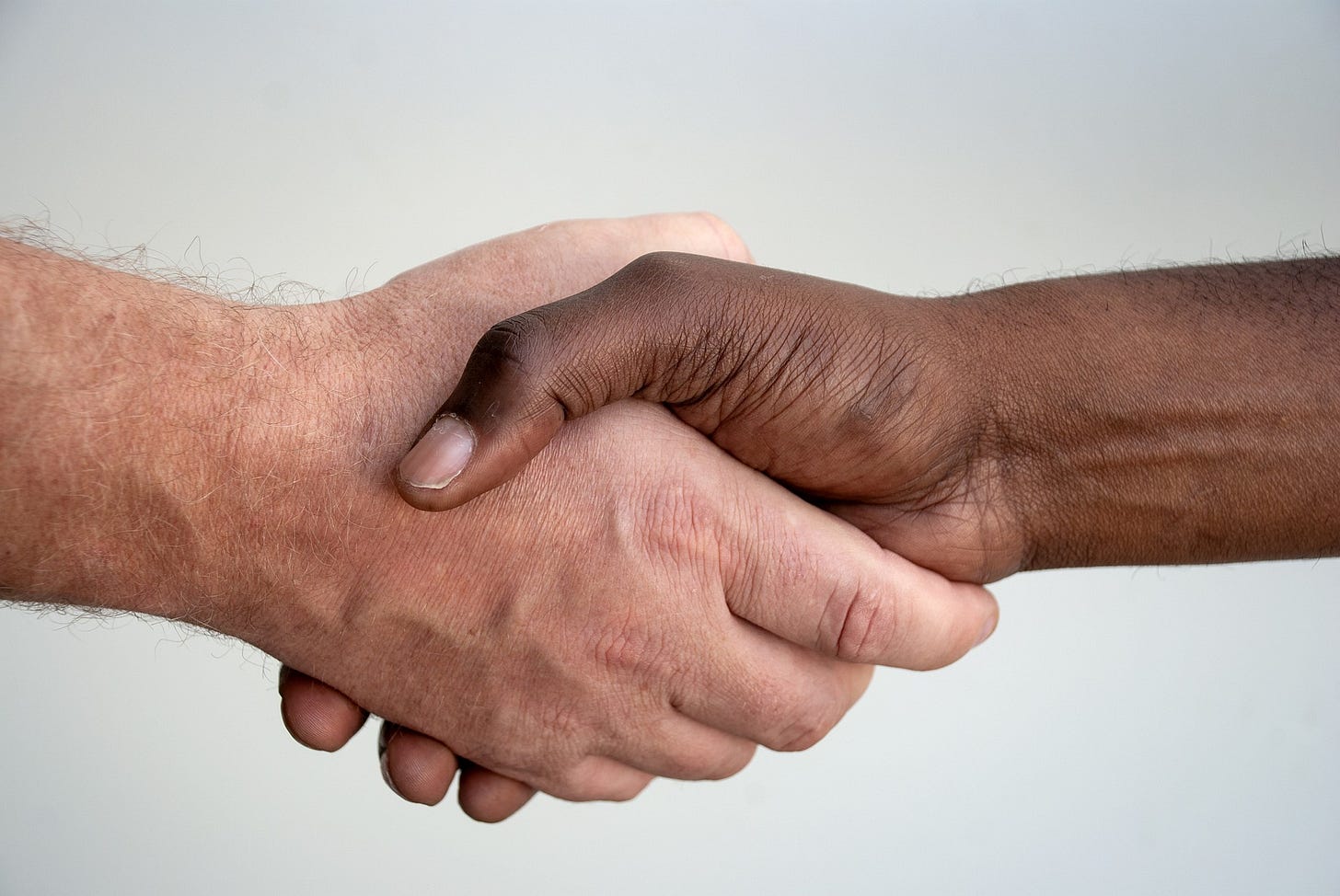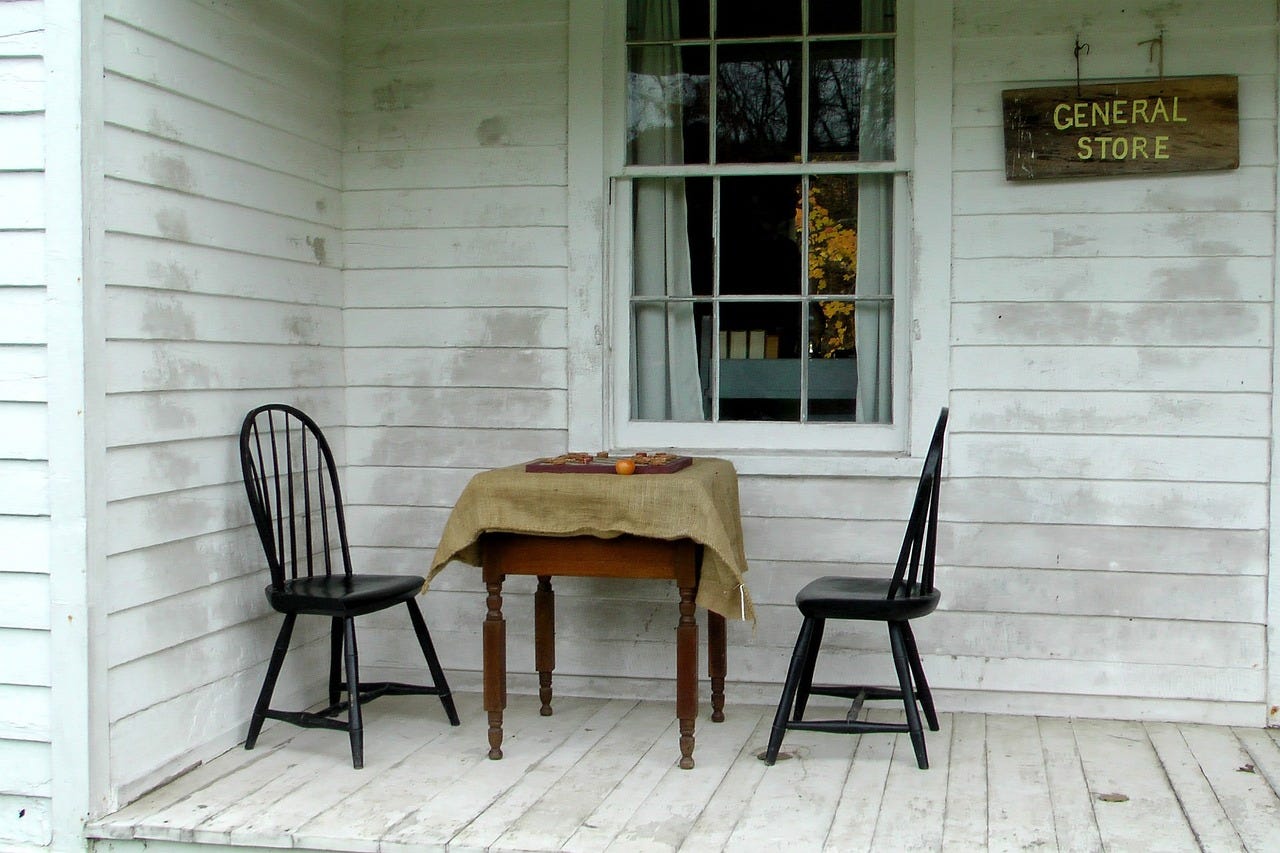When you think about the future, how do you feel? Are you optimistic? Pessimistic? Fearful? Cautious? Confused and unsure? How does that inform your daily decisions? What investments are you making for the future? What efforts are you making to grow, build, learn, and connect? What alliances are you forming? How is your physical health? How is your mental health?
Herein I explore the mentalities, behaviors, and resources that foster stability, security, and health in times of peace and in times of tension, in want and in plenty.
It does not take a thorough study of current affairs to conclude that the world is in a state of turmoil and transition. Institutions and systems that have long been reliable sources of stability are showing signs of stress. Bleak forecasts abound. The rules seem to be changing, with no clear path forward.
Those of us in "First World" countries have begun to experience scarcity in small ways, and are realizing that the facade of civility is thin- much thinner than we'd imagined. In the last few years we've witnessed the panic that ensues when there are shortages of fuel, building supplies, medical supplies, toilet paper, ammunition, and canning jar lids, among other things. Often the shortage itself is not as concerning as the resulting panic. The visual effects of empty shelves and signs announcing "Limit One Per Customer" acted as a signal to a dependent consumer populace: we might not have what we need, and we don't know how else to get it.
Recently there has been much talk of inflation, bank failures, de-dollarization, the rise of Eastern Empires, trade wars, proxy wars... not to mention the price of eggs. Many people are getting into backyard chickens for the first time and learning other "self-sufficient" skills.
Innovators consider liminal space and time an opportunity to fill a need or to design something that works better. Change doesn't have to be scary. The future could be better! Maybe the time for change has come, and we can use our creativity and imagination to solve our problems. Maybe we didn't need that old world in the first place.
Many others have worked hard their entire lives and finally have home equity and accruing investments that they hope to enjoy in retirement and leave an inheritance to their children and grandchildren. The value of the dollar and the health of the market, the strength of our social fabric and the integrity of our institutions is of great personal concern to someone who has 40 years of diligence and wise decisions that they don't want to go to waste.
For all of these reasons, there have never been more first-time "preppers". More and more people are becoming interested in local, trusted supply chains, stable commodities, investment hedges, emergency preparedness, and self-protection. All too often they encounter an online community fixated on fear, outlandish worst-case scenarios, hoarding, and an obsession with ammunition. Some "preppers'' seem to believe that security means building bunkers, isolating from "society", stacking gold, silver, and/or crypto, food and weapons in preparation for the "zombie apocalypse" or "the boogaloo". The aggression and paranoia are a real turn-off for people who just want to learn how to grow butternut squash and gather eggs.
There are two main points I like to bring up in conversation with serious doomsday preppers; (1) Everything you have stockpiled can be taken from you in a matter of minutes, and (2) In the event that you die peacefully of old age, was all the stress worth it? Imagine all the energy, resources, money, and time wasted on preparing for a possible future that never became an actuality. What could you have done with it instead?
Meanwhile there are several crucial assets that are overlooked in conversations surrounding emergency preparedness. I wish to bring them to your attention now, namely relationships. Cultivating connections, friendships, communication, trust, respect, and alliances is (in my opinion) the #1 survival skill. It also carries the additional benefit of improving the quality of your life in the present and in every possible future timeline whether times are easy or hard.
Too many people approach every situation with a "Me against the world" mentality. Braced for hostility and determined to emerge the victor, expecting the worst and looking for threats, they seem to find them at every turn. They trust very few people and ask no one for anything. They usually consider themselves astute observers of human nature as well as great tactical strategists. Ironically, their approach to life is making life harder. Their suspicion makes others suspicious. Collaboration, teamwork, and alliances are opportunities that improve our odds, not reduce them. The inability to become part of something greater than ourselves is a great poverty.
You never know who will eventually be your best friends. It usually comes about over time, one interaction at a time. I have been extremely blessed in the wealth of generous people that have come into my life. Everything I have is a result of community. If anything were to happen to me, I have complete confidence that my wife and children will be well taken care of. When I moved to this area 10 years ago, I was warmly welcomed into a church community that really takes care of each other and shares what they have in a way that most people don't get to experience. I hope to share some of those stories soon in another article. I will share one here as an example:
Once I had a 1987 Dodge Dakota that had been sitting for years covered in lichen barnacles. I bought it for $400 and put another $1200 and 30 hours into getting it going (I have only recently realized that that amounts to buying a $2500 vehicle that is ready to go...) One thing I did not fix was the emergency brake cable, so used the manual transmission as a park brake, as well as a brick under the tire sometimes.
One time I parked on a hill and pulled the chock block at the wrong time. The truck rolled away, ran over a pine sapling, and hit a vacation cabin hard enough to knock the wall off the foundation and move the kitchen cabinets a few inches. I was panicked, as you can imagine! I did not know the owners of the cabin, so I began running through worst-case scenarios and freaking out. I soon discovered that they were one of the nicest, most laid back couples I have ever met in my life! They were grateful no one was hurt, and assured me that we could work it out. The damaged pine tree was actually more of a concern to them than the broken wall. The husband was a carpenter, and only asked that I help him fix the damage.
No third party intermediators were contacted: no police, no insurance. We settled it like humans- by personal responsibility, peaceful dialogue, and mutual agreement. In the course of moving the cabinets and taking the wall apart, I discovered that there was internal water damage from a hidden leak. He was genuinely grateful that we'd found it before it got worse. Real salt of the earth, love your neighbors, Genuine Christians I found by accident! As we worked together we had excellent conversations and formed friendship. He and his wife fed me meals and shared much wisdom. The pine tree survived somehow, and the building was improved. I feel better about the human race, and while I was installing a screen porch for them, the owner of the adjacent cabin asked me to do theirs next, for pay.
People like them have taught me that relationships come first. They are our most important asset. Property is secondary. The use of force, whether personally applied or outsourced to professionals, is a quick way to save your property and lose a potential friend. Mutual, consensual, voluntary agreements are the strength of any community and the only truly moral foundation of any society. For this reason I tell my neighbors "If I have a problem with you or one of your dogs or cows or children I will come talk to you about it personally and see if we can settle it between us. I do not call 911 unless someone needs an ambulance. I hope you'll do the same for me".
I have had plenty of experiences with angry, miserable, paranoid litigious sociopaths for neighbors. People who will stab you in the back while you're trying to help them, people who will call the police instead of talking to you, people who cannot uphold their side of an agreement, who fight over right-of-ways, who build fences 15 feet over the line on their neighbors' property, and even one or two who shot live rounds over my head... What do you do about them? Eventually they end up alone with a bad reputation and no one in town who wants to do business with them. It's hard to have sympathy for them, but they are doing as much harm to themselves as anyone else.
Making enemies, holding grudges, avoiding reconciliation and cutting off communication are TACTICAL ERRORS. In a SHTF situation you now have neighbors who feel they owe you nothing but harm and have been looking for an excuse to get rid of you.
If I find someone to be untrustworthy, they often end up feeling like I am their friend. That is because I stay close to them and get to know them. I want to keep an eye on them and gather intel. Isolation drives mentally unstable people even further into dangerous territory. Connection is healing. Even if they never get better, they may spare you and your family when they finally go postal. They may even send you a text message before they pop off like "Today's the day. You were always nice to me". That's good intel.
The most important practical things you can do to create peaceful networks with the people around you are:
1) Listen
This is such a simple skill, it is often overlooked. All too often we are impatient and annoyed when we should be present and listening. We’ve always got something better to do. There are people who have been alone for a long time, and no one visits them. There are some people who have been home for 3 years now, and are just coming out for the first time. Even if they don’t show it, they are often desperate for human contact and may even be on the verge of despair. Sit with elders, widows and widowers, check in on shut-ins and invalids. They may have more to say than you are in the mood to hear, and it may not be interesting to you, but it may be the most important thing you can do for someone and all it costs is time.
2) Ask for help. It seems counterintuitive, but this is possibly the best way to get into a new neighborhood. It feels good to be able to lend a hand to someone in a jam. That’s why we want to be the one in the position of rescuing, not being rescued. Asking for help is embarrassing, especially if I let my car run out of gas or sunk my truck in mud up to the axles (speaking from personal experience). When I ask for help, the other person gets to feel like a hero. Thank them profusely. Now you owe them a favor, which gives you an opportunity to interact again in the future. Hopefully by the time you run out of toilet paper they will have a spare roll or 2 stashed away and you'll both have lost track of whose turn it is to return a favor.
3) Share the bounty
3 years ago we bought a farmette in a neighborhood where we don’t know many people. One of our neighbors occasionally brings us fruit, venison, or candy for our kids. We grew more green beans than we needed last year and we found out their beans had not sprouted (they were not the only ones I heard that from). We invited them to have the rest of ours, and as I helped them pick beans, we talked and got to know each other better. When there are extra potatoes or home-made bread or honey, it is always a good idea to share with others. A robust local economy includes gifts and goodwill for no other reason than it’s a whole lot of fun. Open, generous relationships are easier to establish during times of plenty. During hard times we can continue taking care of each other, just as we always have.
My great-grandparents emigrated from Ireland. I heard stories from their childhood of near-starvation levels of poverty. Even though there were 11 children and not much to feed them with, my great-great-grandmother would never sent someone away empty-handed if they came asking for food. Generosity was her driving ethic regardless of the circumstances. She was also a midwife and would sit with people as they crossed over to the next world.
4) Attend community events and activities
Some people around here live on the same land as their ancestors, or very nearby. Some of us are new. How do people find each other? Where do they go to hang out in a small town? Many people commute to work and the grocery store. There are 2 small stores, a hardware store, and a post office. Several times a year there are events like “Heritage Day”, “Lawn Party”, Yard Sales, and Fairs. I would recommend attending as many of these as you can and become familiar with the culture of your town as well as its residents. If there is a Library, that is often an unofficial community center as well, where mothers can meet other mothers and make new friends. We have started a homeschool co-op with several other friends, and we have met a number of nearby families who joined up later. Community Sports Leagues are perhaps the most common way of meeting new people and making friends. If there are any fundraisers, Farmer’s Markets, Contra Dances, or bluegrass jam sessions, you MUST go check them out!
Twice a year the Mennonite churches in our area (Shenandoah Valley- there are lots of them) volunteer to process apples or meat, dehydrate and can them for sending to countries that need aid. I have made a number of friends while chopping apples, and there’s a positive vibe while working together to make something happen for someone else.
We were not meant to live in isolation from each other. Life is improved when we help each other carry the load. Open communication, mutually beneficial exchanges, trust, brotherhood and sisterhood are a kind of wealth that is more stable and sustainable than gold, silver, brass, lead, and copper. You can have a safe full of the latter and still be mighty poor.










